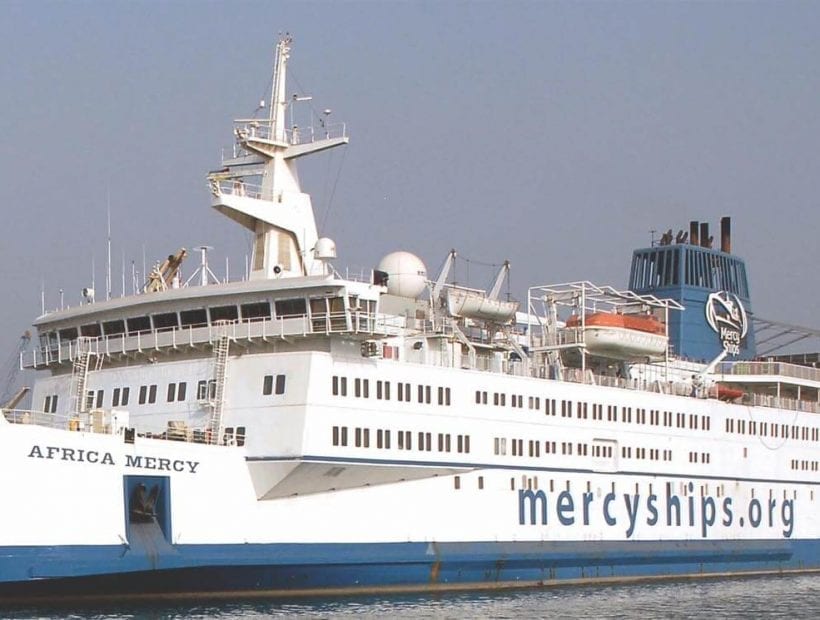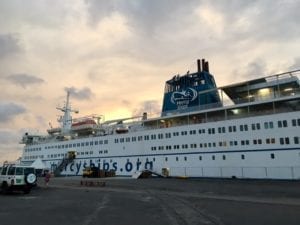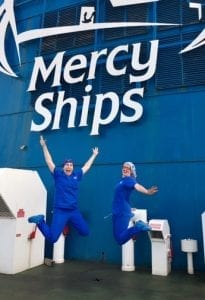Mercy Ships: The Honest Truth


Navigating the Local Market
On Sunday I went to a local artisan market here in Cotonou. There’s a smoky trash smell that permeates the city, mixing with the sounds of people speaking French and Fon. Vendors drape brightly colored cloths over you as you peruse the fabrics, paintings, jewelry, and woodworks, saying, “Sista, come see, I give good price.” Which, of course, they don’t. We yovos (white people) are incredibly easy targets, which I find both hilarious and frustrating. I bought a small painting at probably a 200% markup because the vendor had learned to say, “Sista, sista…If you don’t pay this price, I can’t feed my children.”
He played on my human emotions, and he won.
That may be why I have had so much trouble writing a blog each week. I don’t want to play on your emotions. They’re fleeting. What we all need is truth, shared simply and honestly. So for today, I’d like to keep things simple. So let’s walk just through this past week together, shall we?
The Bravest People I’ve Ever Met
Week three found me back in maxillofacial with Dr. Gary Parker. He’s probably one of the most humble, patient, kind, and gifted surgeons I’ve ever had the privilege to work with. He speaks softly, but with conviction and authority. Sometimes he wears scrub pants with giraffes on them. And he prays over every patient just before he makes an incision. His truth? “We can’t change the whole world, but we can change the whole world for one person.”

We get our patients from one of four wards- A, B, C, or D. They’re crowded with patients and their families, sometimes loud and a little bit hectic. Humble beds are separated by curtains for the illusion of privacy. The nurses who work there are the most incredible people. You have to get creative when you’re presented with limited resources and a whole lot of needs. Their truth? Sometimes dance parties cure more than medicine can.
Our patients walk barefoot and in a hospital gown down a short hallway to the OR, flanked by a nurse and a translator. They calmly and quietly lie down on the OR bed, letting us hook them up to monitors without really understanding what they’re meant for. All of this is done with a clear mind because we can’t afford to pre-medicate our patients simply to calm their nerves. We try our best to talk through the translator to comfort them as they go off to sleep, but it’s not the same kind of reassurance. And at that moment, the truth is simply this: they are the bravest people I’ve ever met.

Surgeries that Bring Change
Everyone wakes up differently. Some sit straight up in the bed, wild-eyed. Others sleep all through transfer from the OR table to the stretcher to the post-anesthesia care unit (PACU). The PACU nurses are the first people the patients really see after their surgery, and I think they probably share the most touching moments there. Those moments when the patients’ minds are finally clear enough to realize that the tumor isn’t there, the deformity is corrected, the threat is gone, and the stigma is erased. Smiling, laughing, crying, clapping, quiet contemplation. Everyone reacts differently. It’s in those moments that the nurses help them accept this truth: they are changed.
Depending on the surgery, patients can stay on the wards from days to weeks. They are cared for by countless volunteers, undergoing therapy, counseling, education and rehabilitation. And in that time, however long it is, we all are able to accept the truth that hope and healing happens here.
—
In May 2014, Travel Nurse Across America (TNAA) announced a partnership with Mercy Ships, as part of its ongoing philanthropic activities. TNAA sponsored four nurses to volunteer on a healthcare delivery mission in Africa. Mercy Ships, a global charity organization, uses ships – floating hospitals – to provide free surgery and dental care in impoverished countries. Mercy Ships has been in operation since 1978. The nurses sponsored by TNAA worked for eight weeks each on the African mercy ship docked in Cotonou, Benin. Follow the TNAA blog for Mercy Ships updates.







